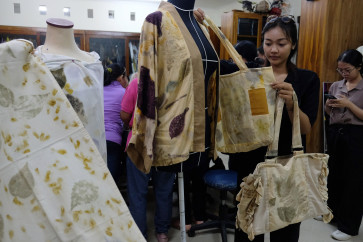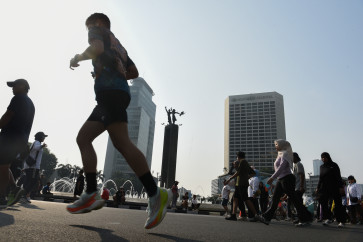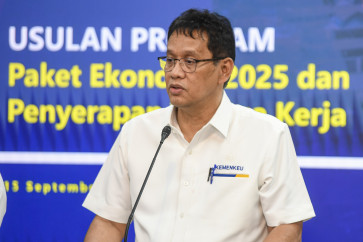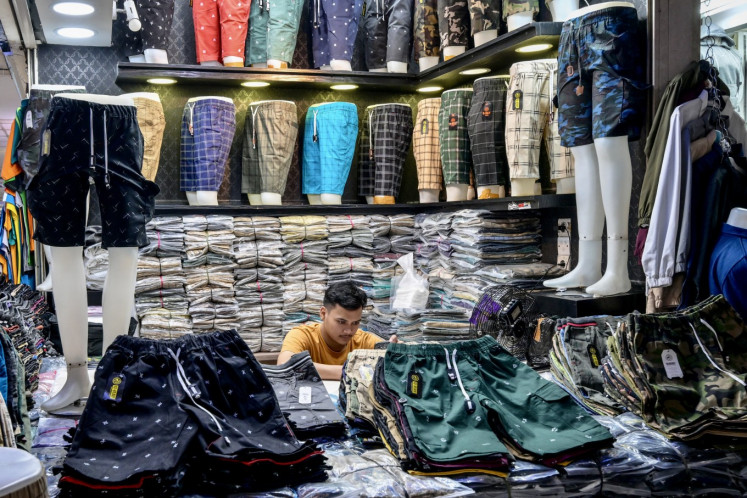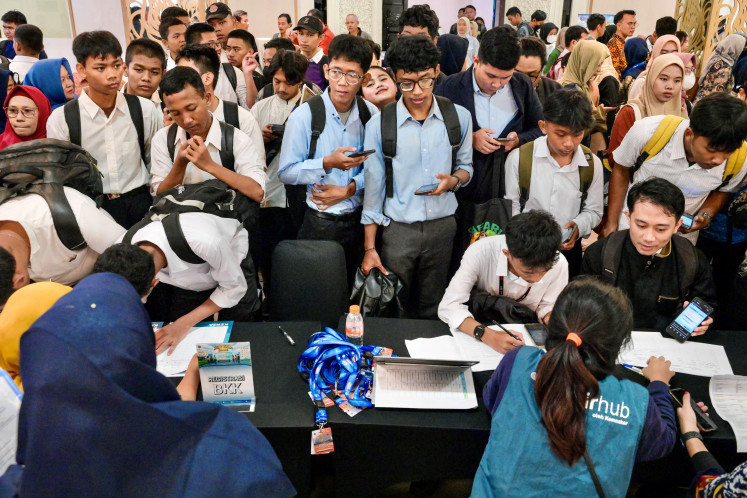Popular Reads
Top Results
Can't find what you're looking for?
View all search resultsPopular Reads
Top Results
Can't find what you're looking for?
View all search resultsWhy care about global migration?
Migration, which relates to the movement of persons from one place to another, is best described in numbers
Change text size
Gift Premium Articles
to Anyone
M
igration, which relates to the movement of persons from one place to another, is best described in numbers. In its 2017 International Migration Report, the United Nations revealed that the number of international migrants had neared 258 million, up by almost 50 percent from the mark in 2000.
Since the planet is inhabited by around 7.55 billion humans, the number of international migrants constitutes a very small proportion of the world’s population, with only 3.41 percent. Yet global migration continues to demand the attention of the world’s community.
The reason is simple. Global migration is an extremely complex and multidimensional phenomenon. Its root causes are multiple.
More and more people are leaving their countries in search of better employment or education. There are 25.9 million refugees and asylum seekers worldwide, according to the UN.
These poor people fled their countries to escape from armed conflict, discrimination or persecution.
Addressing root causes of migration, therefore, is not an easy task.
Managing the movement of more than a quarter of a billion migrants is persistently challenging. A large number of migrants utilize a regular pathway, while many fall victim to human trafficking or employ the service of a migrant smuggling syndicate.
Since migration is closely related to the safety and livelihood of people, migration is indeed a sensitive issue. In several countries, policy on refugees has become a determining issue in elections. The presence of a large number of refugees and other migrants is said to be one reason behind the rise of xenophobia and racism.
There are various conventions to guarantee the rights of workers, including migrant workers, under the auspices of the International Labor Organization (ILO). The Refugee Convention was adopted in 1951, and has been utilized by the Office of the UN High Commissioner for Refugees and the International Organization for Migration to assist refugees and asylum seekers.
Unfortunately, against the complex nature of global migration, a comprehensive global instrument on migration does not exist. There is no agreed definition to “migrant.” When we discuss migration before the international arena, it may cover migrant workers, refugees or asylum seekers. Depending on the pathway they choose to travel, discussion could also cover regular migrants and irregular migrants.
Efforts to strengthen global migration governance achieved a new level in 2016 when the UN General Assembly adopted the New York Declaration on Refugees and Migrants. The declaration mandates, among other things, the creation of a global compact for safe, orderly and regular migration. The global compact will be nonbinding, and consist of best practices and norms that can guide relevant stakeholders in improving the management of global migration amidst the fragmented migration governance. The negotiations for this global compact will begin next month, with a view to adopt it at the end of the year.
Against this backdrop, Indonesia has been far from a bystander. Protection of Indonesian citizens abroad, including migrant workers, is a matter of national priority, and underlines Indonesia’s involvement in some international forums such as the ILO, the Colombo Process, the Abu Dhabi Dialogue or the Global Forum on Migration and Development.
However, global migration discourses go all the way beyond migrant workers. Indonesia must be able to respond properly and have a comprehensive perspective on global migration.
Currently, migration-related policies are carried out by several institutions, such as the Office of the Coordinating Political, Legal & Security Affairs Minister, the Law and Human Rights Ministry, the Manpower Ministry and the Foreign Ministry.
Synergy among these institutions is a must, to lay the groundwork for a comprehensive national policy on migration and to ensure Indonesia can benefit from global migration.
Limiting our perspective only to migrant workers is no longer adequate. Indonesia is not only a country of origin for migrants, but also a country of transit and destination, albeit at a different proportion. As of August 2017, Indonesia hosted approximately 14,000 foreign refugees and asylum seekers. Last year, 74,000 foreigners were recorded to work in Indonesia.
An impressive economic development, and the possibility of becoming the world’s fourth-leading economy by 2050, will almost certainly attract more foreigners to work in Indonesia. Strengthening our human resources capacity is therefore necessary to make sure Indonesians are not left out of the picture by foreign workers. Previous controversies over the presence of Chinese workers in Indonesia signal sensitivity of the migration issue here.
Meanwhile, the number of global refugees and asylum seekers is likely to increase. A more restrictive migration policy embraced by some countries will further delay resettlement programs, prolonging the stay of refugees in transit countries, including Indonesia.
Nonetheless, opportunities do exist. Demographic transition in certain countries — Japan and Europe for example — marked by the rising number of elderly people, will increase demand for skilled workers to compensate for the shrinking proportion of the working-age population. While the number of elderly persons is also rising in Indonesia, the high number of working-age persons adds to the pressure of job creation. That will solidify overseas employment as an option for people.
Indonesia’s foreign policy on migration takes into account the dynamic nature of migration at the national level. Strengthening global migration governance must be a priority, based on the principles of multilateralism and triple win (benefits for migrants, countries of origin and destination).
In the short term, mindful of the absence of a comprehensive, international and legally binding instrument on migration, Indonesia sees the global compact for safe, orderly and regular migration as an opportunity to build consensus among nations on how global migration should be governed, and to complement and strengthen existing mechanisms.
Hence, Indonesia looks forward to participating constructively throughout the negotiation process for the global compact this year, and stands ready to partner with countries with similar goals and aspirations.
_____________________________
The writer is director general of multilateral cooperation at the Foreign Ministry.


